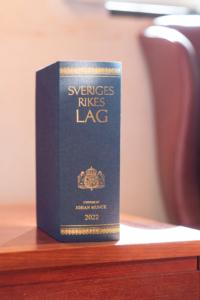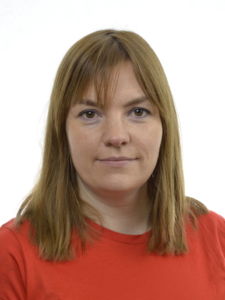On 20th July 2021, new rules of the Swedish Aliens Act took effect. The changes to the rules entail new requirements for non-EU/EEA citizens being granted a permanent residence permit. Lundagård interviewed two doctoral students, a student union representative and a politician to hear views on the permanent residence permit issue.
Sweden doesn’t understand me anymore. Something got lost in the process
The most concerning requirement to get a permanent residence permit in Sweden is the ability to support yourself financially, and that this must be of at least a certain duration. The employment must be either permanent or fixed-term lasting at least 18 months from the date on which the application for the permanent residence permit is examined. The 18-month duration is calculated from the date the application is processed, but not the date when it is submitted. Due to the nature of PhD positions, the changes were deemed unfair for doctoral students who answered with both written and physical protests.

Foto: Alexandra Roslund
Sarah* is a doctoral student in Social Sciences at Lund University (LU). She used to feel more attached to Sweden. Due to the new Aliens Act she now feels differently: “It just does not feel the same now, the connection. Sweden doesn’t understand me anymore. Something got lost in the process.”
Practically, she thought the new rules were ambiguous: “the 18 months is whenever the case officers start investigating your case. And now they are taking 9 months [to start processing your case. Editors note]”. Sarah feels that the 18 months requirement was unreasonable since “if PhD students get a postdoc position immediately after the graduation, which is usually two years in Sweden, it might suffice the needs, but we don’t know when our cases will be investigated. And in fact, getting a postdoc immediately after PhD is not easy, especially in Social Sciences”.
Sarah therefore wants an exemption for PhDs without the 18-month requirement. “The new rules could work for many other immigrants, but never for PhDs. I think we [PhDs in Social Sciences. Editor’s note.] have been the most impacted because the PhDs in Science can easily change to the industry, but we can’t”.
The issue of permanent residence permits has put a lot of stress on Sarah, “to be honest, this is a lot for my mental health. I have kept myself updated but I understand nothing is getting changed. I think my best way to show resistance would be to leave after the PhD and look for a postdoc somewhere else.” She has not yet decided on a destination, “but maybe somewhere where I can feel more respected”. She stresses, “when you do a PhD, you put yourself into intense research activities, you should ideally not be bothered about your stay. Honestly, we have better things to do and think about. We contribute! We are skilled immigrants who have been chosen to participate in knowledge production and we expect to be respected for the job we do”.
Richard* is also a doctoral student in Social Sciences at LU, and he is already in the last year of his PhD. He tells Lundagård: “I have learnt how this law and the state function. It’s a ‘law’ that is already in effect, so I have no option than to accept the change. But the law should not have been implemented in haste. For example, it would be ideal to apply a new legislation for the new PhD students who are planning to come to Sweden and applying for their first-time work/residence permits. In this way, they would at least be informed about the consequences. Now the new so-called Aliens Act affects everybody in a retroactive order and is quite unsettling”.
He continues: “Many PhD students and researchers had multiple options and they chose Sweden for what it had to offer; stability of work and living conditions through permanent residence permit. But if it is just a circle of precarity, then they have to think about other options.”
If the application of a permanent residence permit remains a complicated, time consuming, mentally laborious and emotionally draining process, then I should find some other place.
Richard has signed petitions, took part in seminars, followed the protest demonstration on Facebook for an exception for PhDs, but he was not sure if his involvement is specifically for any change. “My participation brings myself in solidarity with the people who are also struggling with this”.
His participation is a way for him to keep track of the updates. “There are different organisations involved and people updating their cases, but there is a big void between formal and official communication for me. It is difficult to understand the ongoing administrative process after the rules have changed”, he said.
Richard points out the lack of unity when urging for changes of the new Aliens Act, “some target the law. Others recommend for some changes within the law”, he explained. These developments add to the uncertainty, especially for researchers like him who are in their final years of their research and education. “What should they prioritise? It’s overwhelming and frustrating to do everything, finish work, take care of their well-being, plan for future work in or outside Sweden, amongst other needs”, he mentioned.
Richard does not hold a positive view on his future in Sweden after the PhD. “If the application of a permanent residence permit remains a complicated, time consuming, mentally laborious and emotionally draining process, then I should find some other place. I am not in Sweden to renew my visa every month or be sceptical about the looming uncertainties that affect the social, professional and psychological wellbeing. The premise was to engage and contribute to Swedish society with excellent research outcomes, but the premise no longer seems true.” He agrees with Sarah on the injustice for doctoral students and researchers: “highly skilled immigrant experts, who brought certain skill sets and knowledge to contribute to the public institutions in this country should not be subjected to this sort of condition.”
Even though our contracts are short, it doesn’t mean our jobs are unreliable. People with doctorates are incredibly employable and have a very low rate of unemployment

Doctoral Student Union (LDK).
Photo: Alexandra Roslund
On an organisational level, Lund’s Doctoral Student Union (LDK) represents the doctoral students at LU, except those at Lunds Tekniska Högskola (LTH). LDK is currently protesting against the new rules on permanent residence permits. They are asking the government to make an exception for doctoral students and researchers. Mattias Sjö, the Executive Director of Internal Affairs of LDK, articulates the necessity of the permanent residence permit: “academia is a very international thing. It’s highly desirable for a country to hang on to a person after they have spent a few years studying or researching in it, because then you get to reap all the benefits of having that very highly educated and skilled person in your country”.
Mattias Sjö thinks that the 18 months employment contract was how the Migration Agency interpreted reliable employment, which may be fair in most professions, but not academia. “Even though our contracts are short, it doesn’t mean our jobs are unreliable. People with doctorates are incredibly employable and have a very low rate of unemployment”, he said.
On 19th February there was a peaceful demonstration at Stortorget in Lund formally organised by LDK together with DOKT who represents LTH doctoral students. There was a demonstration in Gothenburg on 26th Feburary and one in Uppsala on 5th March. They hope that there will be more manifestations in other cities and people will keep supporting each other. If the rules stay as they are now, “it is going to hurt Swedish academia and Swedish industry, because our ability to recruit people – highly educated people – will be permanently worse, especially since we are competing with nearby countries with similar working conditions and more reasonable migration laws”, Mattias Sjö says.
We wanted to have something that was easy to understand for everyone who applied for any form of residency in Sweden.
Emilia Töyrä, a member of parliament for the ruling Social Democratic Party and a member of the Social Committee on Social insurances, clarifies that the 18-month employment requirement “is not stipulated within the law” but is “the way that the Migration Agency interpreted legislation to action”. When asked about the reasons for the change of the Aliens Act, she states that “we had temporary legislation for almost six years, and we need to have permanent legislation. The main goal for that was to achieve regulations that are sustainable, remain efficient, legally secure and don’t essentially differ from other EU countries.”

for the Social Democratic Party and
member of the Social Committee on
Social insurances. Photo: Sveriges Riksdag
As for the exception for PhD students, Emilia Töyrä states that it seems to be contrary to the purpose of the new law that people with different reasons to apply for residence permits should refer to similar rules and processes, without too many exceptions to complicate it. “We wanted to have something that was easy to understand for everyone who applied for any form of residency in Sweden.”
Temporary resident permits became the new norm as the new Aliens Act was carried out, but from Emilia Töyrä’s perspective, it does not change the living conditions at all compared with a permanent one. She explains, “the difference between those two is just the length of the permit. I understand that in a lot of countries there is a huge difference, like with one you get health benefits, with the other you don’t. That’s not the case in Sweden and it is crucial to know that when I’m in Sweden, no matter how my permit looks, I am still insured. I still have almost the same benefits as a Swedish citizen except for voting rights”.
Moreover, as for the impact of the new rules on Swedish academia, Emilia Töyrä thought it would give researchers and employees better working conditions since “if you want these well-educated people that Sweden so desperately needs, then you need to have the right terms and conditions for them when they apply for jobs. So there will be pressure on them to actually fulfil their responsibility. I hope this will lead to them searching for funds on a more long-term basis in order to keep the PhD students in Sweden”.
*The names of the PhD-students have been changed.









